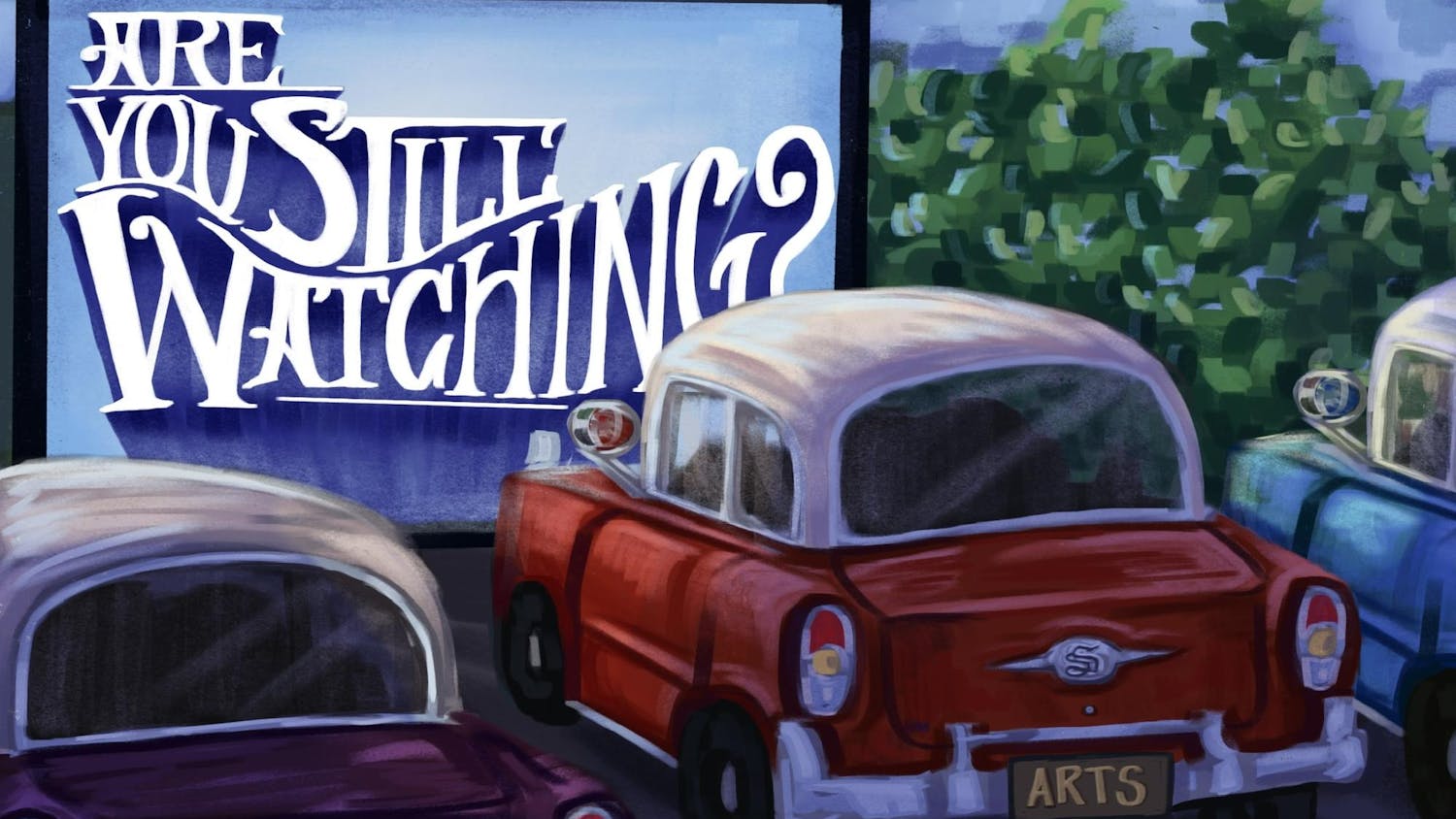On April 25, nearly a decade after Billy Idol’s last album release, Idol released Dream Into It, joined by rock vocalists Avril Lavigne, Joan Jett and Alison Mosshart. Impressed that he’s kept up the spiky, bleach-blonde hair for this long, and being a Billy Idol dabbler, I was eager to listen. Join me as we welcome the punk rock legend back into the music scene.
The opening track and the album’s title, “Dream Into It,” is full of Idol’s familiar reverberations and synergy. With the first verse’s lyrics, “once when I was younger, back when I knew hunger,” the song sets the tone for the album with its reminiscence of his earlier years. Perhaps speaking to his debauchery and reckless 20s and 30s, he complicates his timely reflection with the line, “the records spin as the soundtrack to my sins,” hinting at a later self-awareness Idol will reach as the album continues. It must be said, however, that the opener, in which he ascribes his success to his ability to imagine, feels a bit tongue-in-cheek, almost as though it's being sung through Idol’s iconic sneer.
Ripped away from the familiar timbres of rock-pop, the second track, “77,” opens with Avril Lavigne’s pointed soprano, punctuating Billy Idol’s vocals, which run an octave below. The music is uncannily similar to Lavigne’s solo work, feeling more like the featured artist was Idol himself. That being said, the lyrics immerse the listener in his antics. The track describes running amidst the gangs and greasers in the evolving punk community, declaring that they’d “fight back like 77!” While Lavigne was not yet alive to see it, 1977 undoubtedly marked a revolutionary year for punk rock, in which the movement gained mainstream cultural impact. Idol himself was, at that time, part of rock band Generation X, in the midst of releasing their self-titled debut album.
The track “Too Much Fun,” feeling more like his own once again, is chalk-full of reflections on his mischief. Although playful at times — he clarifies that although he crashed his motorcycle, he “didn’t die!” — the song gets at the significance of the album itself. In declaring, “I’m not leaving until I say I’m done,” he claims his unshakable place in rock.
The fourth track on the album, and probably my favorite one, “John Wayne,” opens with Alison Mosshart’s cool, crooning vocals, offering a refreshing, slow build to the powerful track. Just as with Lavigne, Billy Idol seemingly offers the floor to the featured vocalist, paying homage to her unique, indie-rock style.
Moving on to the track I had most looked forward to, “Wildside,” featuring rock icon Joan Jett. Venturing back into pop, I can’t say that this track really scratched the itch I had to hear the two rugged vocalists collaborate. In my opinion, the distortion effect on Jett’s voice softens her vocal’s signature edge, and I might be slightly biased towards Jett, but I wish he’d given her the space in the track to bring her grit as he did with the two other featured artists. At least the lyrics, in which the musicians speak to their wild side, ring true. If you don’t believe me, just take a look at his feature on the Behind the Music series.
The sixth track, “People I Love,” rushes in with anticipating percussion and a rising guitar line. Although feeling at first disingenuous and simple with the line, “I see you’re disappointed I left school to start a punk rock band,” Idol goes on to explore the interesting dynamic between feeling inherently inadequate in the eyes of those he loves, while also continuing to let them down. This track’s lyrics brought forth a storyline beyond “the good old days” that I was waiting to hear.
Although, oddly enough, the initial guitar riff feels a bit Lavigne-inspired, in Idol’s next track, “Gimme the Weight,” he finally sobers to his surroundings steeped in self awareness. In listing the scope of his reckless abandon, he sheds a new, remorseful light on his behavior, and speaks of a love with the power to cut through the excess of his lifestyle.
These sentiments culminate in the following track, “I’m Your Hero.” Although suspecting a hint of egotism based on the song’s name alone, Idol pleasantly surprised me, offering the listener a further picture of surviving love. Through his lyrics, ”In your eyes, I’m brand new, I am pure. … I’m reborn,” he praises the space to exist free from his contentious reputation in his lover's eyes.
Billy Idol closes his album with “Still Dancing,” a testament to his persistence and success, a hard fight both on and off the stage. Something in the meter and intensity of the chorus’ “yeah, yeah, yeah” reminds me of his earlier works — think “Rebel Yell.” Quite topical to the substance of the song itself, much like in “77,” Idol goes on to describe the Brixton scene of his glory days. He describes the transition into his stage persona through his name change, best put in the words of his mother, “[making] himself an idol, because he didn’t think he’d ever be one.”
Although falling into the consumer-focused category of ‘corporate rock’ at times, in his rallying album, Billy Idol offers meaningful introspection into his hedonistic past — more than I can say I’ve seen from other 70s rock musicians — and reasserts himself as a seasoned rocker, still as vibrant and electric as he was some 40 odd years ago.
Alessandra Giragos is a sophomore in the College of Arts and Sciences. She can be reached at asg287@cornell.edu.











